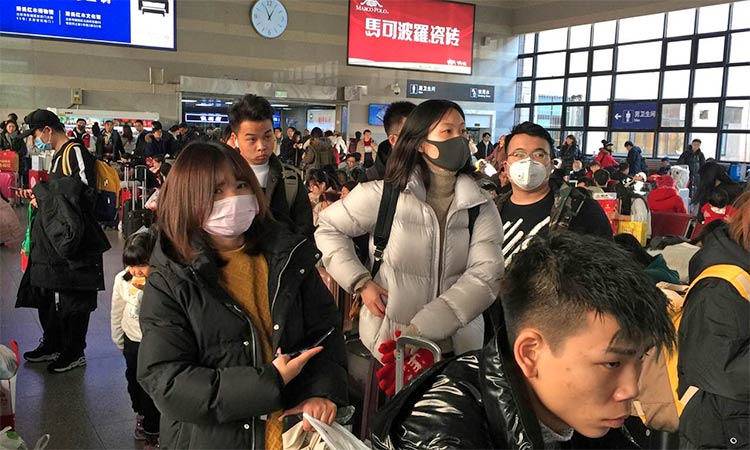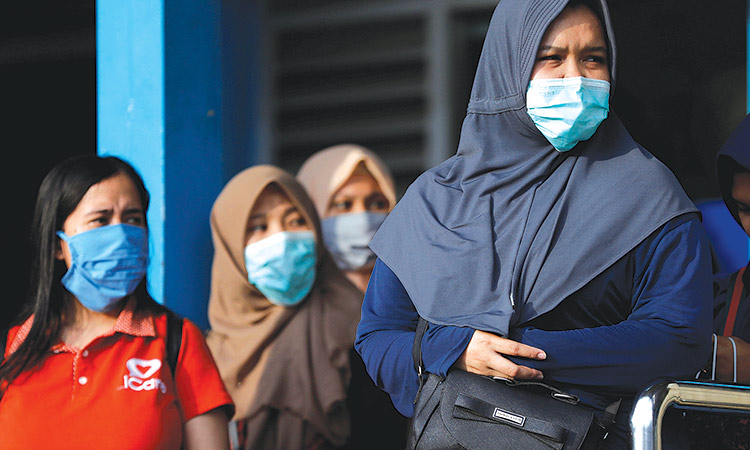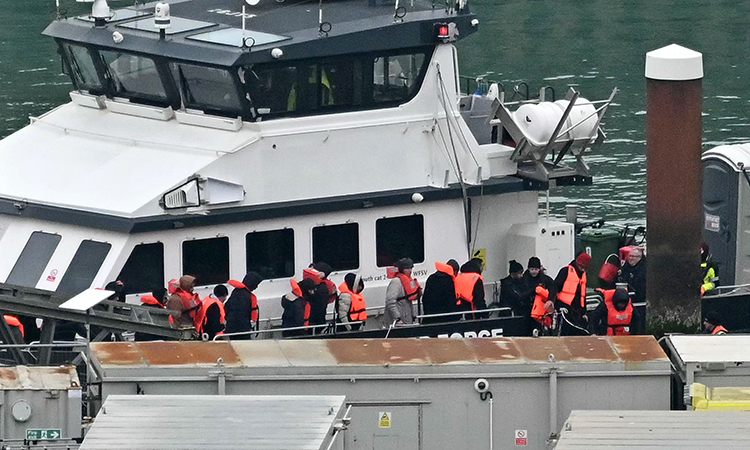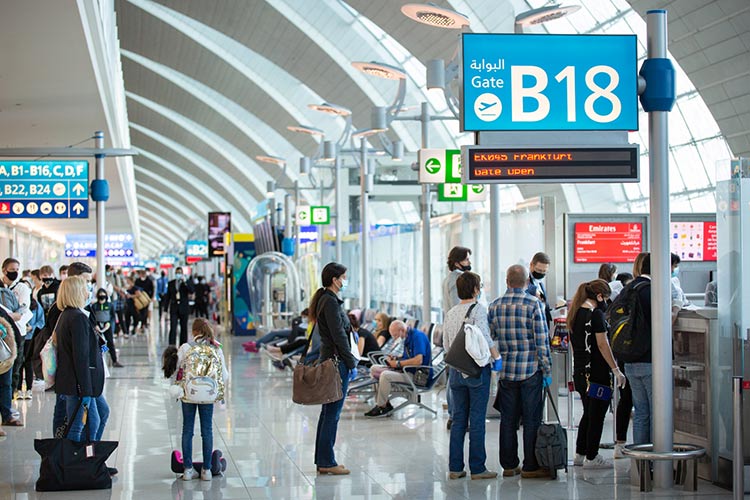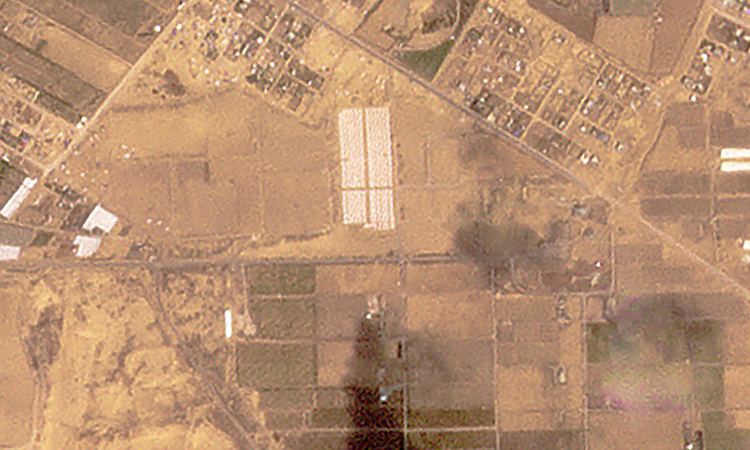Indonesian consulate general implements thermal screening
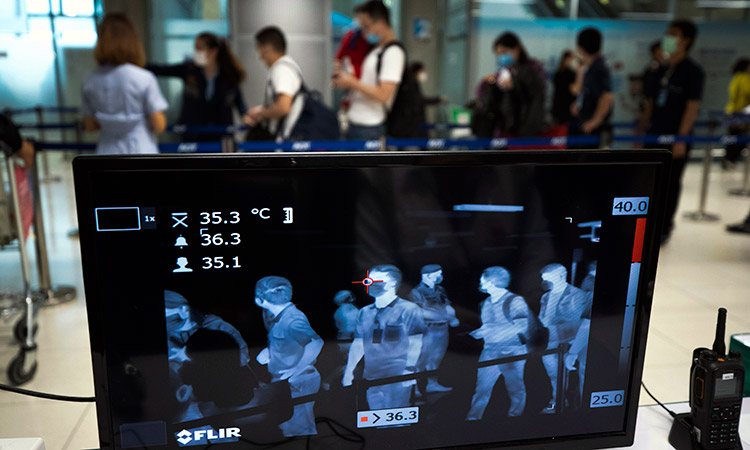
Photo has been used for illustrative purposes.
Mariecar Jara-Puyod, Senior Reporter
The Consulate General of the Republic of Indonesia in Dubai began on Tuesday implementing thermal screening to all its visitors and clients as part of its community health procedures to help curb the rapid and massive spread of Coronavirus 2019 (COVID-19) across the country.
The preventive measure applies to everyone, according to the Arabic, English and Bahasa Indonesia advisory released to Gulf Today on Tuesday.
“Following the recent policy taken by the Government of the United Arab Emirates (UAE) in anticipating the spread of the COVID-19 outbreak as well as to implement the precautionary and preventive measure against the new coronavirus, the Consulate General of the Republic of Indonesia (KJRI) Dubai would like to make all visitors to undergo a thermal screening, including all diplomatic members and consulates corps in the UAE and other official guests/delegates at all levels.”
The consular mission situated in Bur Dubai is the third to apply thermal screening.
The Philippine Embassy in Abu Dhabi (AUHPE) and the Philippine Consulate General in Dubai (PCGDXB) on March 5 (Thursday) announced that beginning March 8 (Sunday) only applicants and those with official appointments shall be allowed entry into their premises and after undergoing the “fever test.”
All three—KJRI, AUHPE and PCGDXB—are now requiring those found “with body temperature higher than 37.5 degrees Centigrade” to return on a later date.”
Meanwhile, as a consequence of the continuing cancellation of public gatherings and activities not only in the UAE but in other parts of the region as well, an events company in Dubai had imposed on all its over 100 employees to go on unpaid forced leave until May.
Moreover, on Tuesday, Dubai Health Authority-Primary Healthcare chief executive officer Dr. Manal Taryam reiterated the 14-day self-imposed quarantine on returning residents and incoming tourists.
“Depending on the travel history, people may be asked to stay home for a period of 14 days,” she said.
Taryam also mentioned that in accordance with the March 7 (Saturday) Ministry of Education advisory, the education sector including students entering the country from anywhere in the world “will need to practice self-isolation for 14 days.”
Taryam noted that returning residents and incoming tourists from the Top 10 COVID-19 affected countries “or from one of the Top 10 countries reporting local transmission of the disease will also have to undergo home isolation for 14 days, to ensure they remain infection-free and to avoid spreading the virus in case they end up developing symptoms during the 14-day incubation period.”
She said these Top 10 “Countries of Concern” may “quickly change depending on the situation.”
As of 10 a.m. GMT on March 10 (Tuesday) and based on the World Health Organization (WHO) data, the Top 10 countries which had registered the most number of COVID-19 cases out of 122 including the Diamond Princess were China (80,761 with 26 new cases), Italy (9,172), South Korea (7,513 with 35 new cases), Iran (7,161), France (1,412), Spain (1,235 with four new cases), Germany (1,224), USA (729 with 25 new cases), Japan (543 with 13 new cases), and Switzerland (with 374).
As of 10 a.m. GMT on March 10, the WHO data showed 59 cases in the UAE.
Among the 122, there were 114,571 COVID-19 cases: 46,268 currently infected patients with 40,497 in mild condition and 5,771 seriously or critically ill. There were 64,276 recovered/discharged and 4,030 deaths.
Taryam said, “All travelers who return from (the Top 10) will be asked to practice home quarantine and social distancing as a way of protecting their loved ones and the community from the spread of the virus. The period of home quarantine will be for 14 days since that is the incubation period of this virus.”
“The basic idea is to stay indoors and to keep a distance from other family members (about three feet to one meter) until the self-isolation period is over,” she also said, adding that those exhibiting any respiratory illness symptom must not delay medical consultation.

